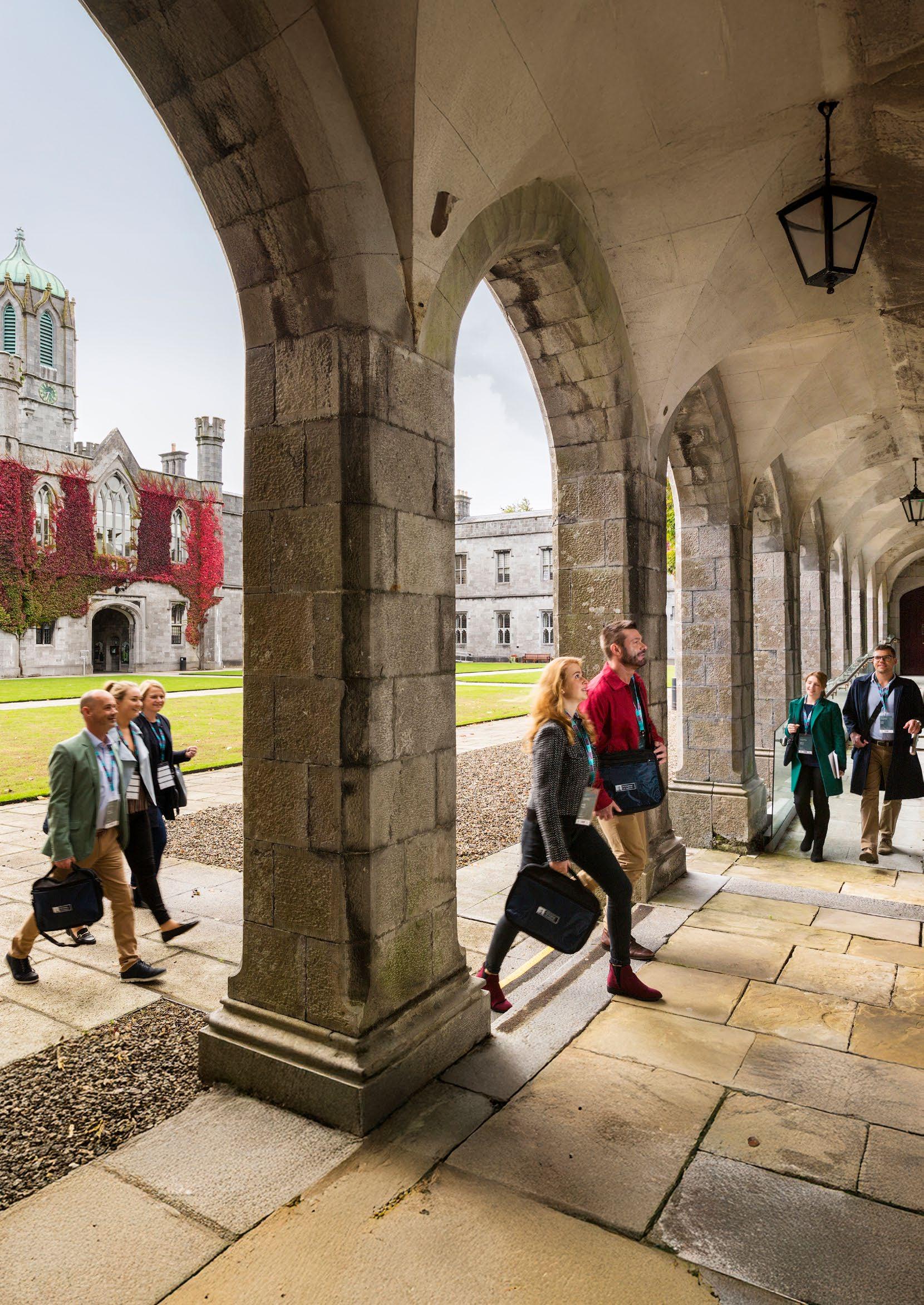

Business Events 2030
Foreword from Peter Burke T.D., Minister for Enterprise, Tourism & Employment
The clear ambition of this Government to growing Ireland’s tourism industry is outlined in the Programme for Government 2025 – Securing Ireland’s Future. Developing and delivering on a business events strategy is an important way to growing our visitor numbers and our tourism offering.
For many years, business travel has been recognised as a key driver of economic growth. As one of the highest yielding tourism segments, it contributes in excess of €1bn1 to the economy annually, €290m2 to the Exchequer and supports almost 22,000 jobs.
This new business events strategy is a product of collaboration between my Department, Fáilte Ireland, Tourism Ireland and industry leaders from the tourism sector and beyond including IDA Ireland, Enterprise Ireland, Universities of Ireland, Public Health and more. I am confident that this collaboration will deliver on its promise.
In the strategy, we recognise the full value and potential of business events. I am particularly pleased to highlight the benefits for more than 20,0003 small and medium-size enterprises (SMEs), local communities and sectoral collectives. Ireland has a strong track record in terms of attracting global companies to locate, build and
grow their businesses. In recent years, we have seen a rise in high growth businesses coming to Ireland, across a broad range of industries including pharmaceuticals, biotechnology, ICT, and renewable energy. This track record will be complemented further through the attraction of business events. Events such as these can provide access to the latest sector trends and insights. They can also foster collaboration and reward commitment.
Through our ongoing support for Tourism Ireland and Fáilte Ireland, the Government will continue to showcase Ireland as a high quality and accessible destination for both national and international visitors, while maintaining our commitment to our environmental and social responsibilities.


Peter Burke T.D. Minister for Enterprise, Tourism and Employment
Footnote:
1. Overseas tourism statistics are generated by Fáilte Ireland using CSO’s Inbound Tourism statistical series.
2. Every €1m of tourist expenditure helps to support 22 employees in tourism industries and for every one euro spent, it is estimated that 29c comes back to the Exchequer.
3. An estimated 20,000 SMEs (less than 250 persons employed) are in Accommodation and Food sector.
Introduction – Business Tourism Strategy Group Chair
This strategy has been created by way of collaboration between the Department of Enterprise, Tourism, and Employment, Fáilte Ireland, Tourism Ireland and industry leaders.
This is an ambitious strategy, recognising the excellent business events offering in Ireland and the strong reputation earned by all to date. This strategy aims to support government policies and objectives that drive robust economic, social and environmental outcomes.
Business events provide a unique opportunity to make a positive impact under each strategic pillar and deliver on governmental goals. In setting the direction for a more collaborative approach to the development of the Irish business events sector, implementation can deliver increased value for tourism and the wider ecosystem.
To bring this strategy to life, and implement the actions required to achieve the success factors outlined therein, several key imperatives are required:
Ecosystem
• Demonstration to wider government stakeholders and gain recognition of the far-reaching benefits of business events.
Oversight and Monitoring
• Establishment of a Department led oversight group to oversee the implementation of the strategy.
Subgroups
• The already established Agency led and industry chaired, Subgroups who are responsible for the development and implementation of plans and the realisation of success. These groups have representation from both the tourism industry, and wider industry including IDA Ireland, Enterprise Ireland, Universities, Public Health and many more.
• Fáilte Ireland is responsible for association
conference activity, including lead generation, sales facilitation, events, bidding, conversion etc., whether in Ireland or overseas. Broader business events promotion overseas, including meetings and incentives, is the responsibility of Tourism Ireland.
Implementation
• Development of sector led, and agency enabled implementation plans that flow from this strategic direction.
• Align implementation plans with national programmes and government goals and objectives.
• Support delivery of world-class delegate experience through learning and development.
• Maintain Ireland’s attractiveness through the creation of a business events subvention framework driving regional, seasonal, sectors, social and environmental impact.
• Creation of a business events legacy framework and measurement tool.
• Facilitate tourism industry to increase the value of meetings and incentive business to Ireland.
• Support the business events sector to help meet the Government climate targets action.


Steph Kavanagh
Strategy Summary
The overarching purpose of this strategy is to set the direction for a collaborative approach to accelerate the development of a world class business events sector and realise the full benefits of business events for Ireland.
* Business to business.
Strategy Aims and Ambitions
This strategy aims to:
• Showcase Ireland as a leading destination for international business events.
• Grow the value of business events beyond tourism.
• Work to develop long-term, sustainable, well-paid careers in the business events sector.
• Develop a balanced regional spread, promoting and advancing regionality and seasonality.
• Support government policies and objectives that drive robust economic, social, and environmental outcomes.
• Delivering business events that adhere to the progressively stringent sustainability standards expected by conferences and corporate meetings.
• Support the business events sector to cut greenhouse gas emissions by 45%.
Ambition 1– Economic
Realising the value of business events
• Achieving revenue growth from the business events sector.
• Prioritising value over volume in Ireland’s business events sector.
• Fostering a secure and resilient tourism workforce for sustainable growth.
Ambition 2 – Social
Contributing to building stronger communities at local, sectoral, and national levels
• Making a positive impact on local host communities.
• Delivering longer-term legacy benefits for sectoral communities.
• Contributing to achieving national goals and objectives.
Ambition 3 – Environmental
Meeting High Sustainability Standards in Business Events
• Supporting business events sector to achieve climate goals.
• Attracting high value business events through sustainable practices.
• Promoting best practice in environmental compliance and resource efficiency
Strategy Overview
The business events sector functions as an export sector, fuelling job creation, fostering innovation, and attracting investment into Ireland. Business events also serve as platforms for knowledge transfer and trade promotion, enhancing a destination’s competitiveness on the global stage.
Ireland, by actively engaging in international business events, positions itself as a hub for international collaboration and investment, amplifying its appeal to global stakeholders. By navigating the challenges and opportunities of a competitive landscape and leveraging its essential assets, Ireland can continue to position itself as a premier destination for business events, shaping its future trajectory on the global stage.
Renowned for its open economy and supportive business climate, Ireland attracts global businesses across various sectors, bolstered by its skilled workforce and innovation-driven environment. The country’s esteemed universities and research capabilities further enhance its appeal as a business events destination.
Business events need small and medium-sized enterprises (SMEs) on the ground to deliver. Hence, they play a critical role in the success of this sector. This strategy aims to support SMEs, and those they employ, in particular, the retail and hospitality sectors and those in the wider business events supply chain such as AV companies, transport providers, food and drink manufacturers, entertainment, etc.
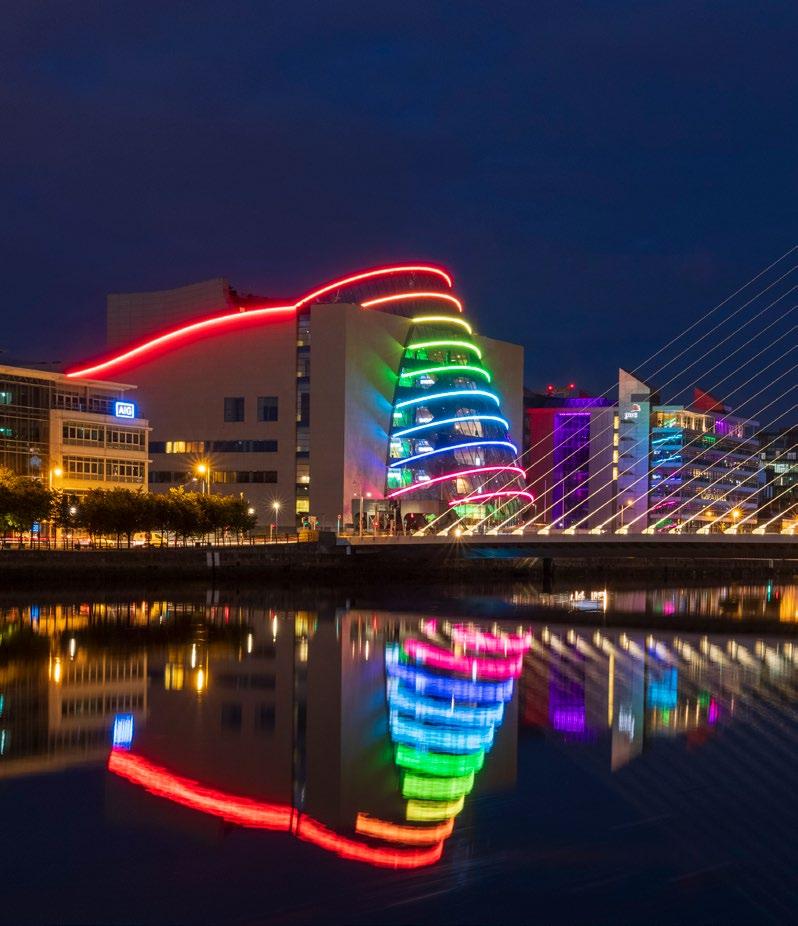

Strategy Core Values
The core values embedded in the strategy are Transformation, Sustainability and Community.
A transformative approach has been taken in the development and will be evidenced in the execution of this strategy with government and industry working together in partnership to deliver on the full value of business events.
This strategy is rooted in the value of sustainable development. Sustainable tourism development takes full account of its current and future economic, social, and environmental impacts, addressing the needs of visitors, the industry, the environment, and host communities. It aims to make optimal use of environmental resources,
respect the socio-cultural authenticity of host communities, and ensure viable, long-term economic operations.
This strategy focuses on the benefits for Ireland internationally, nationally and locally, ensuring positive impacts on communities and long term legacy benefits for key sectors.
Taking an Ireland Inc. approach, this embodies a collaborative and synergetic strategy that unites various stakeholders, and organisations to work together effectively in Ireland and key target markets. It is about fostering collaboration, creating a cohesive ecosystem and leveraging collective intelligence to address challenges and seize opportunities. Ireland
Fáilte
Inc. Business Events Ecosystem
About Business Events
Business event delegates come to Ireland to attend international conferences, corporate meetings or on an incentive trip. This is considered promotable tourism, whereby a destination can bid to become the host.
Business Events are also known as ‘MICE’, an acronym which stands for Meetings, Incentives, Conferences & Events.
Because of the highly specialised, lucrative and high-yielding nature of this sector, each business events visitor, is estimated to generate almost two and a half times that of a leisure visitor.
• Meetings are corporate events staged by companies as part of their marketing, training, motivational or communications outreach. Examples include sales kick-offs, strategy meetings, product launches or road shows. Corporate meetings come to Ireland directly or via planners who typically are employed by third party event agencies. Meeting planners are responsible for recommending destinations for corporate meetings to their clients or put forward a shortlist that they feel will deliver on their clients’ objectives. Ireland based offices of multinationals can also pitch to host corporate meetings giving an opportunity to profile their Ireland operations.
• Incentives are reward trips that are used by businesses to motivate and inspire employees or wider sales networks to enhance productivity. The reward is an extraordinary travel experience in the form of an all expenses paid trip. Like corporate meetings, Incentive
Footnote:
4. International Congress and Convention Association (ICCA)
groups come to a destination directly or via an Incentive House, which is a third-party agency. Incentive houses are companies that specialise in designing, managing and monitoring incentive programmes on behalf of their corporate client.
• Conferences are typically organised by international trade and professional associations to bring their members and Board of Directors together. These associations hold regular conferences or congresses for their members that can be international, national or regional. They are held in person and alternate between destinations on a rotation basis. An estimated 24,000 association meetings4 are organised and operated in this manner globally. While most association conferences require an element of competitive bidding, involving a local or national association member to put forward proposals or invitations (as individuals or part of a bidding group), the rules, processes, and decision-making criteria will differ from association to association. Due to their large scale, planning begins years in advance of the conference taking place.
• Events refer to cultural and sporting participative events open for bidding such as the Ryder Cup 2027, Euro 2028, the T20 Cricket World Cup 2030, the Open Championship, 2025 NFL Dublin Game, etc. While these events are not directly included as part of this business events strategy, they form part of the Major International Sports Events Policy and Strategy Framework. There is a strong alignment between both the business and sports events strategies, particularly in the impact and legacy context.
Why Business Events Matter to the Economy
Business Events or MICE tourism
(Meetings, Incentives, Conferences, and Events) has emerged as a key segment in the global business events sector. This type of tourism allows destinations to position themselves as centres of business and technology while boosting the local economy.
Destinations that successfully attract large events have also seen boosts in their infrastructure and modernisation of services, which enhances the experience for event attendees and leaves a legacy that residents can enjoy long-term.
The business events sector, valued at USD $1.6 trillion with a total global economic impact of $2.8 trillion in output, supports 27.5m jobs globally*. The business events sector plays a
pivotal role in the global economy, intertwining with industry, supply chains, and value creation.
For many years, business events have been acknowledged as a key driver of economic growth.
Realising the Value of Business Events
The business travel sector contributes significantly to Ireland’s economy, generating revenues approaching €1bn annually and supporting 22,000 jobs.
It is estimated that business events delegates, the promotable segment of business travel, inject two and a half times more revenue into local economies than leisure travellers. They also benefit the wider tourism ecosystem by driving high-yield business often during mid-week and offseason periods, complementing the leisure sector.
Beneficiaries
27.5m
USD$2.8tn total global economic impact
$1.6tn
* Source: Events Industry Council/Oxford Economics 2023.
The business events ecosystem thrives on indigenous SMEs and major multinational entities, amplifying the sector’s reach and influence. Every event secured by Ireland represents new business opportunities, injecting fresh revenue streams into the economy and providing stability for the supply chain.
Association Delegate Value
It is estimated that each business events delegate is worth two and a half times that of a leisure visitor, excluding spend on travel to get to the destination. Just over 52% of this is spent by the delegate when in the country on accommodation, food and drink, transport, entertainment and retail. The balance is spent by the event organiser on venue hire, AV, furniture hire, etc.
Key strategies for maximising the impact of business events include focusing on regionality, seasonality and attracting high yield visitors with the means to stay longer and with high repeat potential. Essential metrics include monitoring business opportunities, partnerships, and investment deals, as well as calculating the return on investment for stakeholders by comparing hosting costs against benefits like increased tourism revenue, foreign direct investment, job creation, tax revenue, and business growth.
Complementing Leisure Tourism
With business event attendees injecting significant revenue into the economy, these events complement leisure tourism, often occurring during off-peak seasons and midweek.
Business events are typically held mid-week and outside of the busy summer months, therefore supporting business sustainability and complementing the typical leisure patterns, while contributing to the vibrancy of the cities.
Business events delegates can often extend their stay, either before or after the event, to experience the host destination or return to the destination at a later date, as a leisure visitor. The Ipsos MRBI Business Events Delegate Expenditure survey indicates that 65% of all delegates attending a conference in Ireland would like to return for a holiday and 75% would recommend Ireland for a short break.
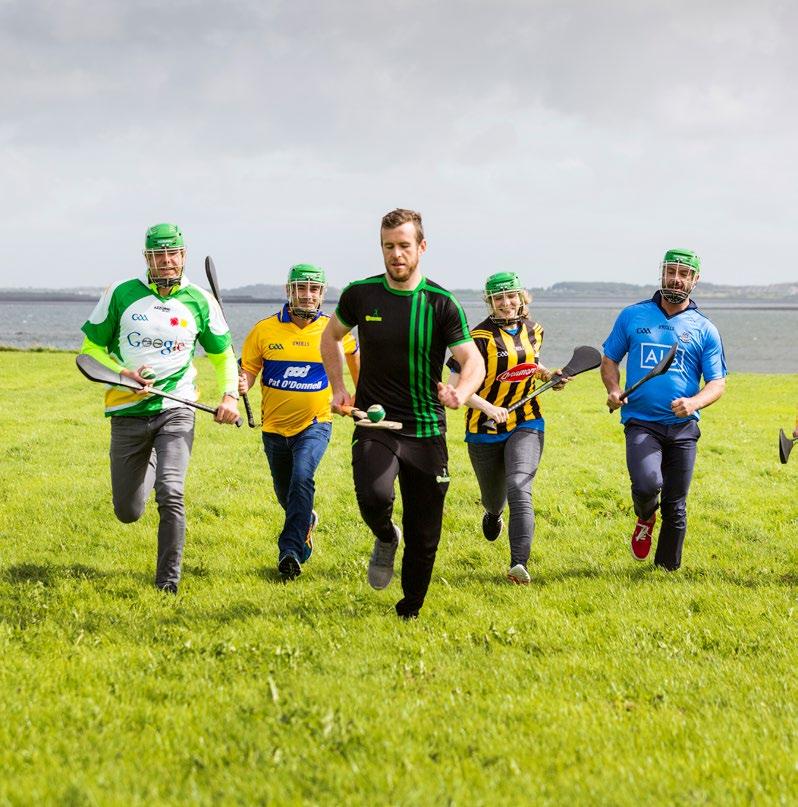
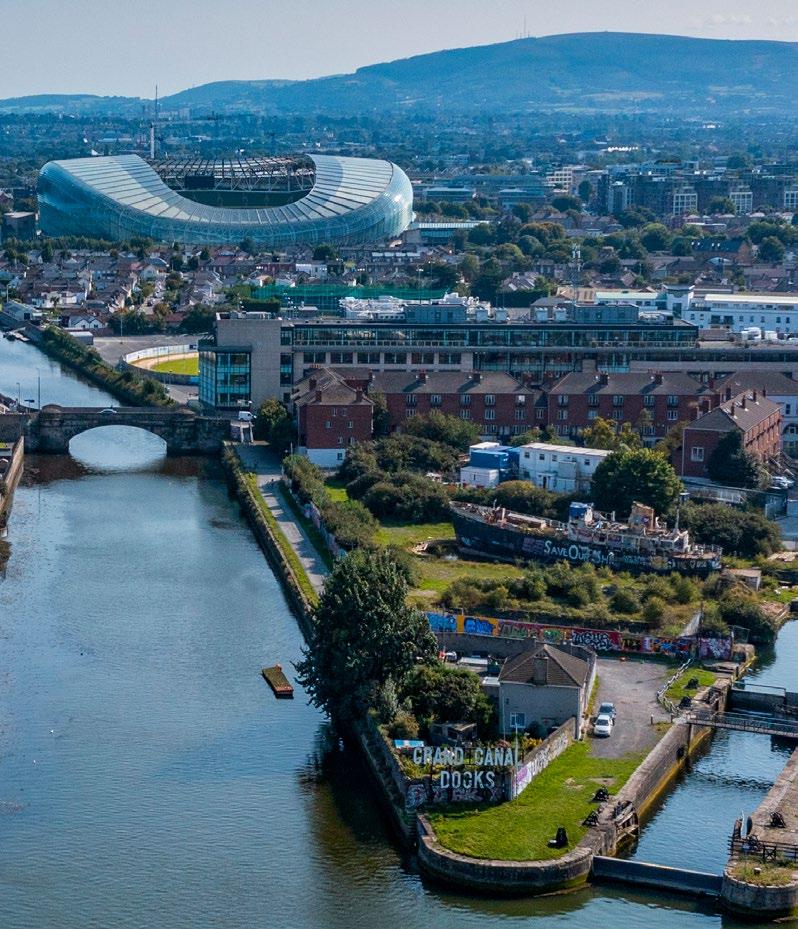
Long Term Benefits
Beyond immediate economic gains, business events have long-term benefits such as attracting foreign direct investment, innovative businesses, and new talent in high-growth sectors. These events help position Ireland as a premier destination for thought leadership and industry advancement, which catalyses economic growth, inspires job creation, and secures a prosperous future.
Accelerating Change
By connecting businesses, government entities, academia, and citizens, business events accelerate change across priority sectors. They reinforce Ireland’s identity as a hub for innovation and transform indigenous industries with access to global knowledge platforms. In navigating these challenges and opportunities, strategic foresight, innovation, and collaboration are paramount within the business events sector and across government sectors.
Enhancing Ireland’s Global Reputation
As part of the Programme for Government 2025, this Government has committed to work to ensure that Ireland becomes a global innovation leader, ensuring we are agile, and Ireland is positioned to support fast-growing, new companies. Business events can elevate Ireland’s global reputation and economic competitiveness internationally by attracting new business opportunities and investment. They showcase Ireland’s innovation, research and development, and collaboration prospects with universities. Measuring the impact of business events on knowledge transfer, Research, Development and Innovation (RD&I) within indigenous enterprise and key sectors is essential. This includes tracking the adoption of new technologies, best practices, and ideas shared during events, as well as the development of new products, services, and research collaborations.


Why Business Events Matter to Society
Societal Impact and Long-term Outcomes Communities
Business events can yield lasting societal benefits by influencing government policy, engaging stakeholders, and propelling research and education. They facilitate networking opportunities for Irish businesses, profile the country as an attractive destination for investment and knowledge acquisition and foster a culture of innovation and creativity. Moreover, business events establish vital links between government and industry, driving dialogues and identifying investment opportunities for future growth.
The iceberg analogy aptly illustrates the value of business events beyond tourism: the tip represents the immediate tourism revenue generated, while substantial impact lies beneath the surface. This deeper influence includes enhanced knowledge transfer, groundbreaking research, and the establishment of local and global networks. Business events are recognised as key influencers on inbound trade and investment decisions, as well as in advancing expertise in critical areas such as healthcare and education.
There is a growing trend among business event delegates and organisers to seek opportunities for positive social contributions when traveling for business events. These contributions span from immediate, tangible Corporate Social Responsibility (CSR) initiatives to much longer-term benefits for the communities involved.
Recognising the societal and long-term benefits of hosting international conferences, this Government is already committed to progress the implementation of the collaboration agreement with the World Health Organisation. This includes the delivery of a Global Conference on Health Workforce Optimisation and Digital/Assistive Technologies EXPO and the WHO Global Age Friendly International Conference.
Local Communities
Local communities benefit from the immediate impacts of business events, which include increased visibility and inclusivity for minority groups, post event participation in sports and cultural activities, and improvements in community health and wellbeing. These events engage diverse stakeholders, fostering community-driven initiatives to tackle social challenges and enhance overall well-being.
Sectoral Collectives/Communities
Business events serve as powerful platforms for sectoral collectives/communities, such as those defined by professions (medical, scientific, financial) or thematic connections (AI, accessibility). They facilitate knowledge sharing, capacity building, driving innovation, and professional development. Associations play a pivotal role in advocating for their members, driving advancements within their fields, and fostering positive change through networking opportunities and collaborative initiatives.
Long-term Initiatives and Policy Impact
The benefits of business events extend beyond immediate professional development. These events drive long-term initiatives that can influence policy and impact nationally. As sectoral collectives advance, they shape policies that foster innovation, improve industry standards, and address critical issues within their fields. This creates robust specialist hubs and sustainable business practices, leading to sustained economic growth and enhanced quality of life.
Local and Government Impact
The dual benefits of sectoral advancement and societal improvement enable Ireland to position itself as a world leader in hosting impactful business events. These events enhance the nation’s reputation, attract international attention, and drive continued economic and social progress. On a local level, business events stimulate economic activity, create jobs, and support resilience of small and medium enterprises.
Government support
From a governmental perspective, they can help shape policies that promote innovation and sustainable development. Government support and investment in business events can transform economies and enhance competitiveness on the world stage. By promoting Ireland as a hub for business events, Ireland reaps the rewards of a thriving professional environment and a prosperous society.

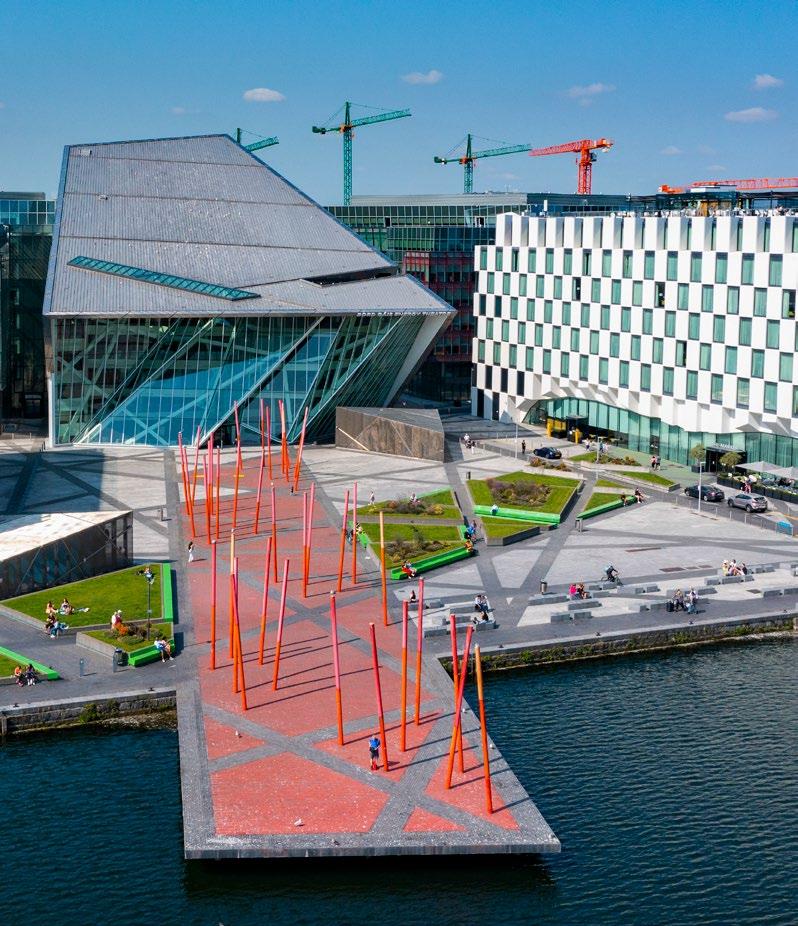
Why Business Events Matter to the Environment
Sustainability Standards in Corporate Events
Corporate events increasingly align with company’s environmental commitments, driving higher sustainability standards in venue selection and destination choice.
Event planners are similarly elevating sustainability expectations, influenced by risk assessments and ethical considerations.
Climate Action and Environmental Commitments
The business events sector can become industry leaders by aligning with the Government’s environmental policy commitments across a variety of platforms including Climate Action; Sustainability; Reducing Carbon Emissions etc.
A key pillar of this strategy is to help the business events sector contribute to achieving the national target of cutting greenhouse emissions in half by 2030 and achieving net-zero emissions by 2050.
Environmental Sustainability as a Legacy Outcome
Recognising environmental sustainability as a primary legacy outcome for events underscores its importance as a core value. Despite challenges, the business events sector faces increasing demand for effective carbon impact management, with benefits extending to the broader tourism industry.
Protection of Natural Systems
Efforts to reduce resource consumption and embrace circular economy principles are growing. This includes efficient water use, eliminating singleuse plastics, and promoting reuse, refurbishment, and recycling. To address biodiversity loss, venues should respect and enhance nature, and procurement practices should avoid products linked to habitat destruction. The business events sector can contribute to a nature-positive future by adopting sector-specific approaches to nature action, recognising the unique ways different sectors interact with and depend on nature.
Climate Mitigation in Business Events
Acknowledging Ireland’s island status and dependence on inbound access, the business events sector recognises the urgency for impactful climate mitigation measures. Organisers and clients alike are committed to minimising negative climate impacts, understanding that failing to do so could compromise Ireland’s competitiveness in attracting lucrative business events.
Collaborative Carbon Impact Management
While a significant portion of an event’s carbon footprint lies beyond destination managers’ control, collaborative efforts and systemic changes in infrastructure and transport within destinations are crucial. This highlights the importance of providing agency led support programmes for the Irish business events sector. Public sector involvement can support sustainability measures in event planning and management.
Strategic Pillars
Overview
To optimise outcomes and support government to build an Ireland aligned with prosperity, sustainability, and societal impacts, the business events sector requires a symbiotic relationship across government departments. By focusing on the economic, social and environmental pillars of sustainability, Ireland can strategically position itself as a leader in hosting business events. Such a strategy not only enhances Ireland’s reputation as a responsible and attractive destination for business events, while generating economic returns and driving employment, but also aligns with global
expectations for sustainable practices, thereby increasing Ireland’s competitiveness in the market.
Supporting these strategic pillars are the foundations which complement and underpin the economic, social and environmental pillars by leveraging Ireland’s societal and institutional framework for the benefit of business events.
Strong foundations such as a stable democracy, resilient economy, international competitiveness, highly skilled workforce and robust tourism industry can ensure a welcoming and professional business events environment.
Ambition 1 Economic
Realising the value of business events
Ambition 2 Social Ambition 3 Environmental
Contributing to building stronger communities at local, sectoral, and national levels
Delivering business events that exceed environmental criteria
Strategic Objectives Strategic Objectives Strategic Objectives
Achieving revenue growth from the business events sector.
Prioritising value over volume in Ireland’s business events sector.
Fostering a secure and resilient tourism workforce for sustainable growth.
Making a positive impact on local host communities.
Delivering longer-term legacy benefits for sectoral communities.
Contributing to achieving national goals and objectives.
Supporting business events sector to achieve climate goals.
Attracting high value business events through sustainable practices.
Promoting best practice in environmental compliance and resource efficiency.
Ambition 1 – Economic
Realising the Value of Business Events
Key Performance Indicators
• Achieve an average annual 8% year-on-year growth in revenue generated by overseas business visitors in the period to 2030.
• Support the development of long term, sustainable, well-paid careers in the sector.
• Add €700m worth of business events development opportunities for Ireland to the Business Events pipeline annually, generating new, qualified leads for industry and supporting their conversion.
• Showcase Ireland as a Meetings and Incentive destination through 16,000 business to business (B2B) appointments annually.
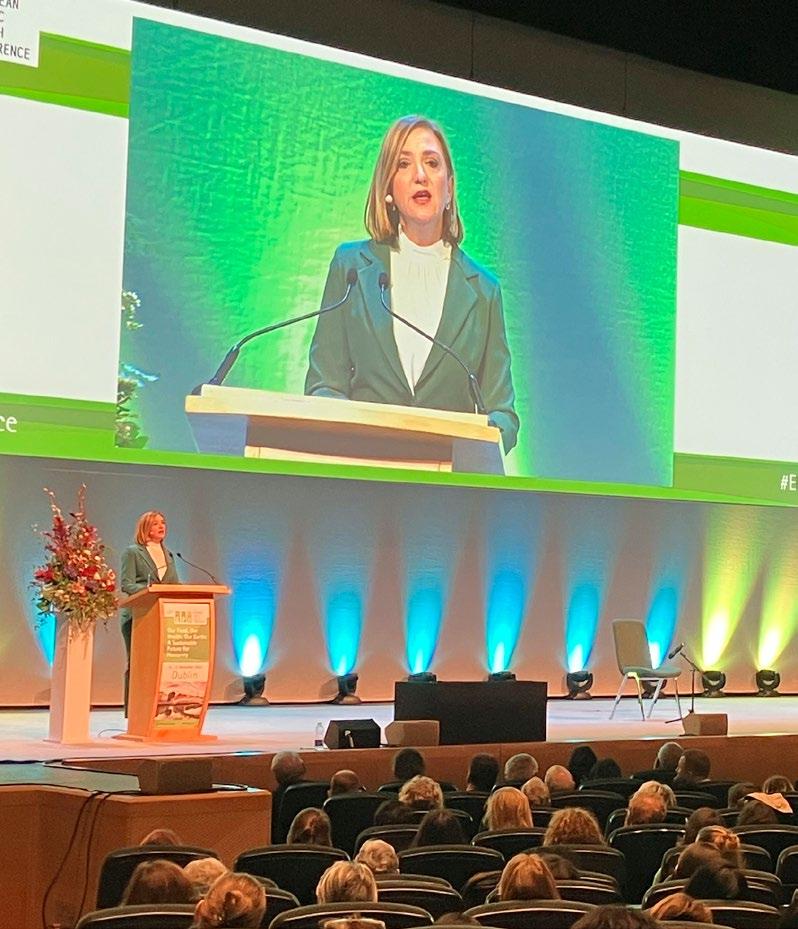
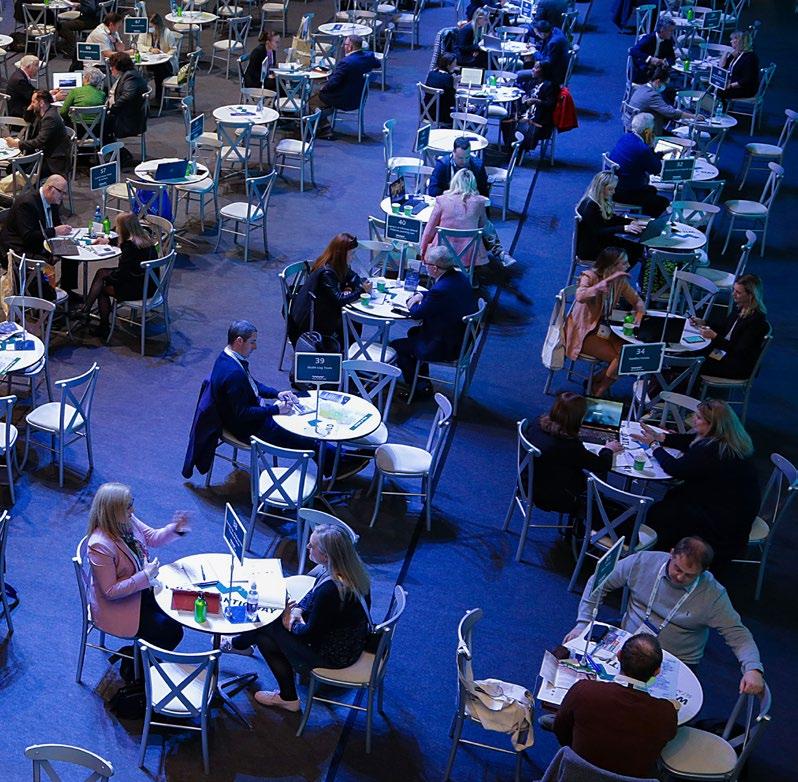
Achieving revenue growth from the business events sector
Strategic Actions
Fostering Cross-Sector Collaboration
Facilitate collaboration between businesses, academia, and government agencies through the agency led subgroups to oversee the development of implementation plans and realise success factors.
Success: A cohesive business events ecosystem that collectively realises success factors.
Leveraging Sectoral Clusters
Leverage sectoral clusters and platforms to facilitate knowledge sharing and innovation, and provide access to opinion leaders, speakers, and other engagement opportunities.
Success: Thriving hubs that promote knowledge sharing and innovation, driving enhanced networking, competitiveness, and productivity.
Business Events 2030
Support competitiveness through incentives in line with the business events strategy.
Success: Creation of a business events subvention framework that will incentivise regional and seasonal growth leading to a more sustainable sector.
Measurement
Create new measurement tools to ascertain the value of the business events sector.
Success: Value baseline by meetings, incentive and conference delegates.
Team Ireland
Utilise a Team Ireland approach via Ambassadors, Embassy networks and Agencies located overseas.
Success: Networks mobilised to support the growth of Ireland's business events sector.
Economic Objectives
Prioritising value over volume in Ireland’s business events sector
Strategic Actions
Promoting Regional and Seasonal Growth
Encourage the growth of regional business events outside of peak tourism seasons and promote extended delegate stays in Ireland.
Success: Leveraging business events to achieve regionality and seasonality objectives.
Enhancing Investment Potential
Focus on attracting key decisionmakers for business events to showcase the ease of doing business in Ireland.
Success: Greater opportunity to pitch Ireland for future investment.
Leveraging Benefits of Business Events for Dublin
Support the drive for urban regeneration and development in Dublin through business events.
Success: Encourage delegates to use local cafes, bars and restaurants to support a vibrant and sustainable city centre.
Securing a Strong Ambassador Pool
Identify and recruit ambassadors through lead generation activities and leveraging diaspora opportunities.
Success: Motivate conference ambassadors to bid to host future business events.
Events
Maximise opportunities derived from hosting major international events.
Success: Strong alignment with Major International Sports Events Policy and Strategic Framework.
Fostering a secure and resilient tourism workforce for sustainable growth
Strategic Actions
Leveraging Tourism Talent Attraction Strategies for Business Events
Supporting the business events sector to drive employee engagement and build on consistently rewarding and appealing workplaces to attract and retain top talent.
Success: Increased influx and retention of highly skilled professionals to the business events sector.
Educating the Next Generation
Participate in targeted programmes of engagement and communications with students and their career influencers, to drive awareness of courses and careers in business events.
Success: Increased awareness and interest among students in pursuing careers in the business events sector.
Fostering Partnerships with Educational Institutions
Collaborate with universities and training centres to leverage specialised programmes and internships.
Success: Steady pipeline of qualified graduates entering the business events sector.
Enhancing Career Development Opportunities
Identify clear career pathways through professional development programmes to highlight the unique benefits and opportunities within the business events sector.
Success: Life-long career pathway leading to a more stable and skilled workforce.
Driving Economic Impact
SaaStock, Dublin, 2024
SaaStock is the world’s leading community and media platform for the global business-to-business (B2B) SaaS (Software as a Service) ecosystem.
Each year their annual event brings together the highest concentration of SaaS decision makers from around the world, to build relationships and accelerate opportunities.
SaaStock 2024 took place at the Royal Dublin Society (RDS) in Dublin and attracted 1,133 attendees, including software founders, executives, and investors for 3 days of impactful sessions and invaluable networking.
Economic Impact
SaaStock 2024 delivered revenues of €2.8m for Ireland. Meetings such as this help ensure the tech sector in Ireland continues to thrive. Some of the world’s largest technology companies have been coming to Ireland for decades, investing tens of billions of euros and in the process creating perhaps the most dynamic and successful tech sector in Europe.
Ireland is now home to 16 of the 20 largest global tech companies, and the top 3 enterprise software providers, with 106,000+ people employed in the ICT industry. Bringing these 1,133 SaaStock delegates to Ireland has given these indigenous companies the opportunity to network on home ground and enhance Ireland’s reputation as one of the strongest pipelines for STEM (science, technology, engineering and mathematics) talent in Europe.
€2.8m
1,133 revenue delivered delegates attended

Driving Economic & Social Impact
Aer Lingus College Football Classic
The Aer Lingus College Football Classic is a game series which has been running since 2022 – with games confirmed up until 2028.
Economic Impact
The 2024 Aer Lingus Classic between Georgia Tech and Florida State was broadcast live on ESPN in the United States and attracted a staggering 5 million viewers. The Aviva Stadium was a sell-out with 47,988 fans in attendance, including 28,406 international visitors. The vast majority of the international visitors were US visitors, many of whom came for the game and stayed on for an average of seven nights generating an economic boost of €146m.
Social Impact
The activities around the game extended far beyond the football, with 45 business, academic, political, community, social and sporting events taking place throughout the week as part of the ‘Much More Than A Game’ initiative. All events are aimed at strengthening existing relationships between Ireland and the US and creating new ones.
Highlights included:
The Ireland US CEO Club in the Round Room at the Mansion House.
The American Ireland Medical Summit.
Enterprise Ireland hosted an inward US buyer event together with Government Representatives.
Official Game Week welcome event hosted by the Dublin Lord Mayor at City Hall.
US College community engagement with Kilmacud Crokes and Ballyboden St Enda’s GAA Clubs.
High School Global Ireland Football Tournament games in Donnybrook Stadium.
Once off Rugby Showdown between Trinity College and Florida State in Trinity Park.
The Georgia Tech alumni association event at Bull & Castle.
“Leaders of Tomorrow” collaboration held in conjunction with students from the travelling Universities and game Partners Eversheds Sutherland and Grant Thornton.
American Irish State Legislators dinner.
28,406
Ambition 2 – Social
Contributing to building stronger communities at local, sectoral, and national levels
Key Performance Indicators
Develop an Impact and Legacy Framework that creates intentional and measurable impact from hosting conferences.
Advise on and implement the Framework to stimulate the full capacity of conferences on the economy, society and environment.
Provide a suite of capacity building supports (tools and training) to event organisers to unlock the full potential of business events to positively impact on the destination.
Align implementation plans with national programmes and government goals and objectives.
Establish a comprehensive measurement system to assess and report on economic, social and environmental impacts.
Maximise opportunities for rural communities and small medium enterprises.

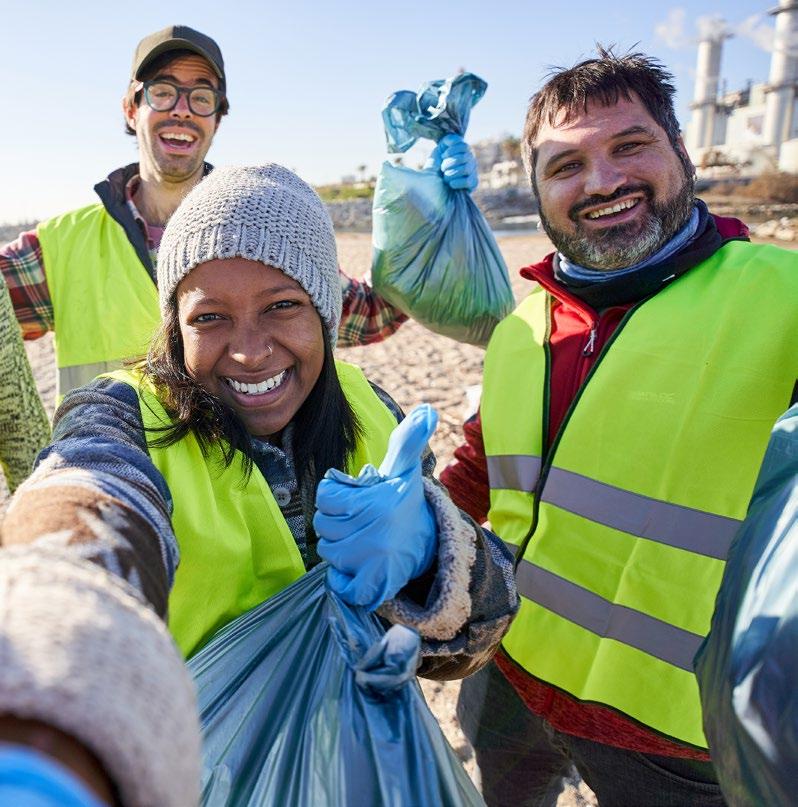
Making a positive impact on local host communities
Strategic Actions
Contributing to the Prosperity of Local Communities
Encourage delegates to experience and invest in the wider local ecosystem to contribute towards the vibrancy and sustainability of businesses and local host communities.
Success: Local businesses thriving from the impact of business events delegates.
Enhancing the Well-being of Local Communities
Embedding social purposes in the implementation of this strategy to enhance the well-being of local communities.
Success: Improved quality of life of host communities as a result of business events.
Implementing Corporate Social Responsibility (CSR) Initiatives
Encourage event organisers to engage attendees in community focused activities.
Success: Enhanced attendee satisfaction from meaningful CSR activities and tangible benefits for local communities.
Championing Equity, Diversity, and Inclusion (EDI)
Champion the creation of a safe and inclusive environment where EDI is embraced, for delegates attending business events in Ireland.
Success: Strengthened reputation as an equitable, diverse, and inclusive destination.
Social Objectives
Delivering longer-term legacy benefits for sectoral communities
Strategic Actions
Facilitating
Knowledge Sharing and Legacy Building
Create a framework and roadmap to deliver legacy for sectoral collectives.
Success: Adoption of the business events legacy framework.
Establishing Measurement Tools
Establish a comprehensive system to identify, assess and report on economic, social and environmental impacts.
Success: Measurement tool in place to support evaluation.
Case Studies
Capture appropriate cases studies for future inspiration on legacy outcomes derived from business events.
Success: Suite of case studies captured and made available to prospective event organisers.
Contributing to Ireland, for tourism and beyond
Strategic Actions
Contributing at a National Level
Align business events with government priorities and objectives to amplify their impact and legacy for local communities.
Success: Business events serve as a powerful platform to deliver greater impact on local communities.
Contributing at a International Level
Align business events with the UNSDGs to amplify their impact and legacy for global communities.
Success: Enhanced reputation and international attention derived from delivering greater impact from business events at a international level.
Enhancing Job Security
Support development strategies to enhance job security and create pathways for career advancement.
Success: Improved job security and increased opportunities for career advancement.
Growing Event Value
Focus on increasing the value beyond tourism derived from business events.
Success: Growth in the overall economic value generated by business events, surpassing tourism-derived benefits.
Driving Social Impact
World Rural Health Conference (WONCA), Limerick, 2022
Improving Health, Empowering Communities
The World Organisation of Family Doctors (WONCA) is a not-for-profit organisation with a membership of 500,000 family doctors. The mission of WONCA is to improve the quality of life of the peoples of the world.
In 2022, WONCA’s World Rural Health Conference took place in the University of Limerick bringing together 750 delegates, including rural and community healthcare professionals from across the globe to discuss the challenges and opportunities facing rural healthcare.
Social impact was a key organising principle from the outset. The conference organisers demonstrated a commitment to equality, diversity, inclusion, community engagement, sustainability and innovation.
Social Impact
The conference created significant impact, sparking initiatives that will shape the future of rural healthcare in Ireland and beyond including;
Establishment of Ireland’s first National Standing Committee for Rural General Practice within the Irish College of General Practitioners.
Appointment of the first-ever Professor of Rural General Practice at the University of Limerick.
Development of a new Rural teaching hub for medical students at the School of Medicine, University of Limerick to spend 25% of their clinical training working in rural communities.
Creation of General Practice Rural Training fellowships, supported by a €760,000 investment from the HSE, started in November 2023.
Publication of the “Limerick Declaration on Rural Healthcare”, a blueprint designed to inform rural communities, academics and policymakers about how to achieve the goal of delivering high quality healthcare in rural and remote areas most effectively, with a particular focus on the Irish healthcare system.
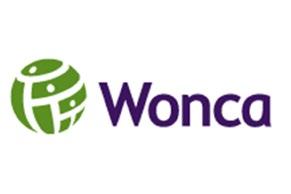
Ambition 3 – Environmental
Delivering business events that exceed environmental criteria
Key Performance Indicators
• Support Business Events sector reduce their carbon emissions by 45% and achieve carbon neutrality by 2050.
• Create a baseline measurement of carbon used per delegate.
• Create carbon calculator to be made available for all business events taking place in Ireland.
• Develop a green toolkit and roll out to industry.
• Incentivise events run in a sustainable manner and/or themed around sustainability.
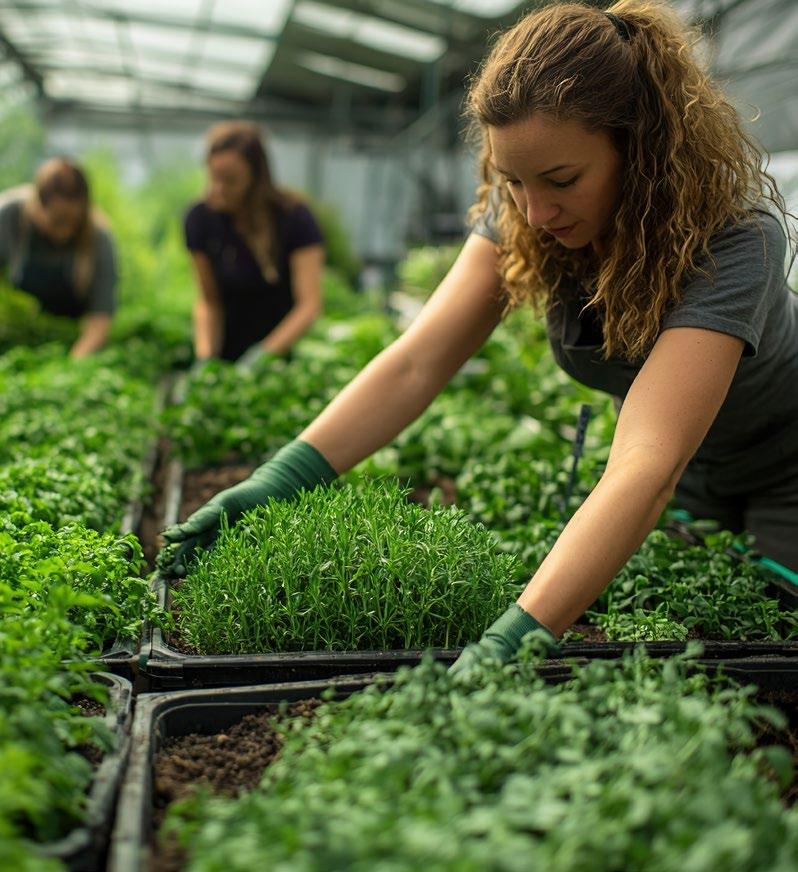

Supporting business events sector to achieve climate goals
Strategic Actions
Supporting the Business Events sector to Deliver Sustainable Events
Encourage the business events sector to participate in agency-led support programmes to aid carbon reduction.
Success: Sector partners that are equipped and enabled to deliver sustainable business events.
Training and Support
Offer comprehensive training and support programmes for the business events sector to integrate sustainability practices.
Success: Widespread adoption of sustainable practices in the supply chain, due to increased supplier knowledge and capacity.
Toolkits
Develop toolkits to enable and assist the business events sector to deliver events in a more sustainable manner.
Success: Adoption of toolkit guidelines during event delivery by the business events sector.
Supporting Sustainability Focused Industry Partners
Prioritise industry partners that have integrated environmental sustainability practices into their business operations.
Success: All business events sector partners adopt sustainable practices.
Environmental Objectives
Attracting high value business events through sustainable practices
Promoting best practice in environmental compliance and resource efficiency
Strategic Actions Strategic Actions
Targeting Sustainable Events
Focus on attracting sustainability focused sectors and events, that draw key opinion leaders and environmentally focused attendees.
Success: Raised awareness of Ireland as a sustainability champion for business events.
Accessing Sustainability
Supports
Support the business events sector to access sustainability grants to improve infrastructure to deliver sustainable events.
Success: Improved value proposition through enhanced infrastructure and practices
Promoting Sustainability
Leadership
Partner with sustainability focused organisations to position Ireland as a leading destination for sustainable business events.
Success: Enhanced reputation as a leading sustainable destination.
Linger Longer (Bleisure)
Promote extended stays in Ireland alongside business event attendance to align with the sustainable tourism principle of travelling less frequently but staying for a longer period.
Success: Enhanced revenue for tourism businesses, from those attending business events.
Guidelines for Implementation
Encourage the integration of sustainable practices into business event planning, including waste prevention, and provide practical guidance for execution.
Success: Adoption of sustainable practices and reduced environmental impact.
Education Initiatives
Raise awareness of climate action and sustainability among the business events sector through workshops and programmes.
Success: Integrated sustainability principles into the event planning processes.
Collaborative Knowledge Sharing
Foster exchange of best practices to reduce the carbon footprint of business events.
Success: Reduced carbon footprint across the business events sector though collaborative knowledge sharing.
Verification
Encourage the business events sector to secure sustainability verification that aligns with the all-island sustainability assurance programme.
Success: A committed business events sector that demonstrates best-in-class sustainability practices.
CASE STUDY
Driving Environmental Impact
35th International Geographical Congress 2024
Following the hugely successful EUGEO Congress that took place in Galway in 2019, Ireland was successful in its bid to host the 35th International Geographical Congress (IGC) which took place in Dublin in 2024. It attracted over 2,600 international delegates and delivered an estimated economic impact of €6.6m.
The theme for IGC24 was ‘Celebrating a World of Difference’ and the main objective of the event was to promote interdisciplinary research and encourage collaboration across different geographic disciplines and related fields.
Environmental Impact
Sustainability was core to the event planning. Here are some of the environmental highlights:
• Carbon mitigation: The conference was hosted in Dublin City University (DCU) which is part of the Dublin City Council de-carbonising zone. The event raised funds through an optional environmental levy for delegates, which will support carbon insetting initiatives on university campuses in Ireland as a legacy project.
• Hybrid event: An innovative hybrid event was co-hosted with the Royal Geographical Society in London. The keynote speaker was in Dublin and the discussants were in London enabling colleagues at another event in London to experience the event with no additional carbon impact.
• Digital Access: By providing digital access only through the conference app and online programme, the event eliminated the need for printing, significantly reducing paper waste.
• Sustainable Materials: The procurement of sustainable badges and lanyards for all delegates minimized the environmental impact of event materials.
• Water and Waste Management: Delegates were encouraged to bring their own water bottles, and water refill stations were provided, eliminating the use of single-use plastics. Managing food waste by requiring pre-notification if delegates did not require lunch resulted in minimal food waste. Conference menus also ensured vegetarian options as standard.
€6.6m
2,645
Economic Impact delegates attended
Supporting Government Priorities
The strategic pillar approach in this strategy has been carefully curated to synchronise with the strategic commitments in the Programme for Government 2025 – ‘Securing Ireland’s Future’ ensuring a coordinated effort to sustainably grow Ireland’s economic, social and environmental objectives.
Business Events 2030 aligns with the high level goals contained in the Programme for Government. The coordinated implementation of the strategy and hosting of international Meetings, Incentives, Conferences and Events in Ireland, can support the delivery of key governmental priorities to address the challenges and opportunities facing the country in the years ahead, including, but not limited to:
• Delivering a strong and stable economy and improving Ireland’s competitiveness in a changing world.
• Supporting the development of key economic sectors and sustaining enterprise growth and job creation.
• Encouraging academic and research involvement in public life and contributing to the solution of societal challenges.
• Supporting balanced regional development and ensuring communities throughout the country can thrive.
• Supporting action to tackle the impact of climate change and achieving the Sustainable Development Goals.
• Supporting the hosting of major international sporting events and showcasing Ireland as a high quality and accessible destination.
• Continue to develop Ireland’s presence around the world and maximising impact in host countries.
• Reconnecting with the global diaspora and developing international diaspora networks.
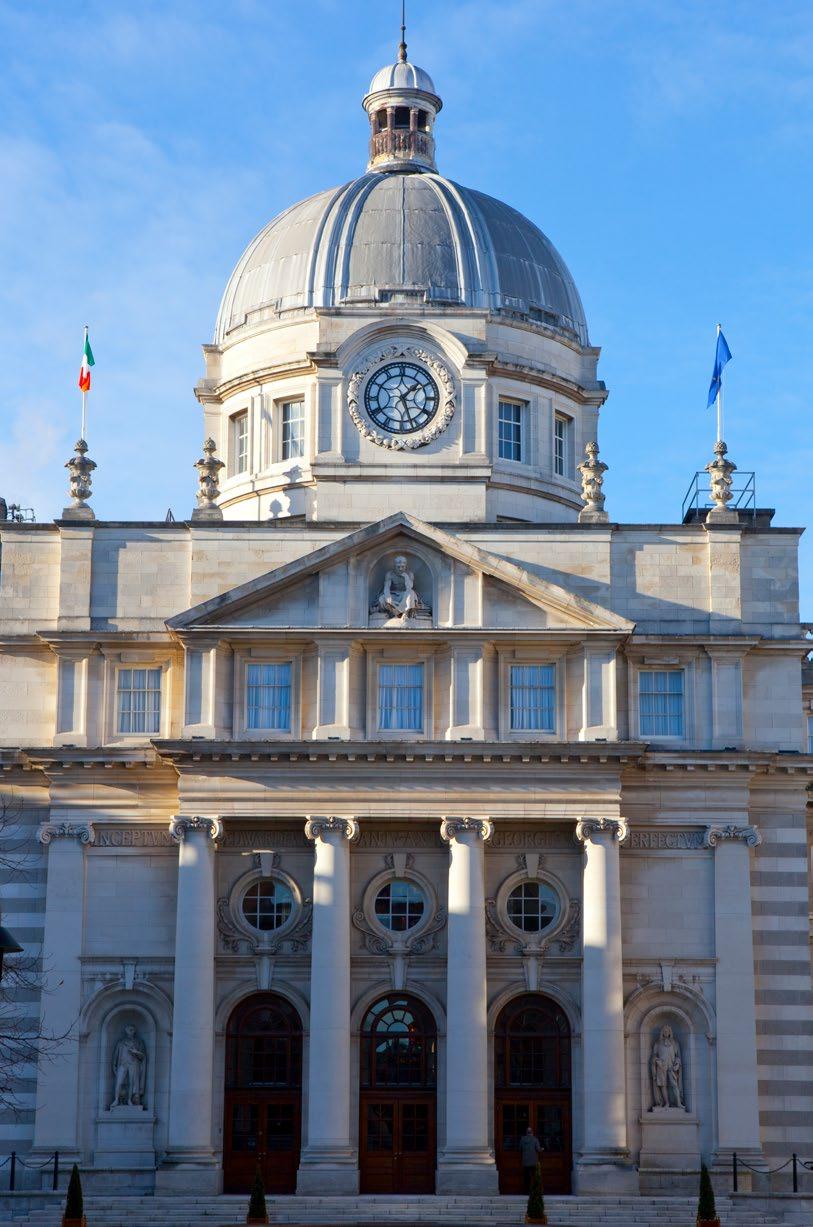
Ireland’s Sustainable Development Goals Alignment
The National Implementation Plan demonstrates the continued commitment to the 2030 Agenda through a ‘whole-ofgovernment’ approach and mainstreaming of the Sustainable Development Goals (SDGs) across national policies.
By aligning Ireland’s business events strategy with the National Implementation Plan, business events will aim to support the achievement of these national objectives.
This strategy aims to contribute meaningfully to several of Ireland’s SDGs, including but not limited to:
• Foster business events that promote entrepreneurship, innovation, and economic development, to create opportunities for decent work and sustainable economic growth in Ireland.
• Focus on hosting business events that encourage collaboration, knowledge sharing, and technological advancements that will contribute to building resilient infrastructure and promote inclusive and sustainable industrialisation.
• Promote inclusive participation, knowledge exchange, diversity, economic empowerment, and policy advocacy. Business events provide platforms for individuals from diverse backgrounds to engage, learn, and collaborate, empowering marginalised groups and advocating for policies that promote social equity and justice.
• Strive to showcase sustainable practices in urban planning, transport, and resource management, through business events, thereby supporting the development of sustainable cities and communities in Ireland.
• Support business events in Ireland through various initiatives aimed at promoting sustainable practices in event planning, execution, and management. These events often emphasise reducing waste, conserving resources, and adopting eco-friendly alternatives.
• Commit to reducing the environmental footprint of business events by implementing measures to encourage low carbon solutions, such as waste reduction, and promoting sustainable practices amongst industry, attendees and stakeholders. Collaboration is key to achieving the Ireland’s sustainable development goals. By fostering partnerships between businesses, government agencies, NGOs, and other stakeholders, business events can amplify impact and drive collective action towards sustainable development.

Subgroups
Association Conference
Subgroup
Members
Chaired by Stephen Meehan
(The Convention Centre Dublin)
Organisation representatives include:
• Department of Enterprise, Tourism and Employment
• Fáilte Ireland
• Tourism Ireland
• Association of Professional Conference Organisers
• Dublin City Council
• Dublin Convention Bureau
• Enterprise Ireland
• IDA Ireland
• Irish Hotels Federation
• On Campus
• Public Health
• Regional Convention Bureaux
• Royal College of Surgeons Ireland
• Universities Association of Ireland
• Venues Ireland
Broader Business Tourism
Subgroup
Members
Chaired by John Healy (Moloney & Kelly)
Organisation representatives include:
• Department of Enterprise, Tourism and Employment
• Tourism Ireland
• Fáilte Ireland
• Tourism Northern Ireland
• Dublin Convention Bureau
• Gala Venues
• Irish Hotels Federation
• Irish Tour Operators Association
• Northern Ireland Hotels Federation
• SITE Ireland
• Visit Belfast
Glossary of Terms
Pillars
Strategic pillars are the key areas of focus
Imperative ‘Imperatives’ provide the interpretation of, and then parameters for, the strategy.
Objective The challenge or opportunity contained within the Imperative.
Business Events
MICE
Incentive House
Buyer
Convention Bureaux
There is no universally agreed term to describe the business events sector, however MICE is a widely used acronym that means Meetings, Incentives, Conferences and Exhibitions.
MICE is an acronym for Meetings, Incentive, Conferences, and Exhibitions
An incentive house is a company that specialises in designing, managing and monitoring Incentive Programmes for their clients. A Destination Management Company (DMC) is often used by Incentive Houses to manage the logistics of the event.
A buyer is a person we engage with to identify opportunities to bring business events to Ireland. It is the person or company responsible for managing the procurement of a business event. These could be agents, meeting planners, associations, corporate clients etc
Convention Bureaux partner with us and with buyers to convert opportunities. There are five Convention Bureaux located in Dublin, Cork, Kerry, Galway and the Shannon Region. They are membership organisations funded by industry, local authorities (exc Dublin currently) and Fáilte Ireland and act on behalf of the industry members. They help convert business events for Ireland.
Professional Conference Organiser (PCO)
A PCO is a company that specialises in the management of conferences, congresses, seminars and similar events. The company acts as a consultant to the organising committee or headquarter organisation, enacting its decisions and assisting to fulfil their objectives, while using the experience and knowledge it has gained over many years of organising events.
Destination Management Company (DMC)
Bleisure
Regional Events
A DMC is a professional services company with extensive local knowledge, expertise and resources, specialising in the design and implementation of events and tours. DMCs are often used by businesses for planning activities where the company has no local knowledge.
Bleisure is a term used to describe travel that combines or blends both business and leisure travel. People in a bleisure trip, will typically add some extra days to their business trip to experience the destination.
Regional events refer to events taking place outside Dublin, usually in one of the other business events hubs (Cork, Kerry, Galway and the Shannon Region).
